In the dynamic realm of Human Resources (HR), effective leadership stands as the linchpin for organizational success. HR leaders are instrumental in shaping workplace dynamics, nurturing a positive culture, and safeguarding the well-being of employees. In the face of technological advancements reshaping the HR landscape, these leaders are not only tasked with adapting to change but also leveraging technology to streamline processes and enhance the overall employee experience.
Adapting to Technological Transformations
As technology continues its relentless evolution, HR leaders must embrace change as an opportunity rather than a challenge. The integration of HR technology solutions is no longer an option; it’s a necessity in the digital age. These solutions, ranging from automated administrative tools to advanced data analytics, empower HR leaders to revolutionize processes, driving efficiency and agility in managing human capital.
The Imperative of an Employee-Centric Approach
Effective HR leadership pivots around an unwavering commitment to an employee-centric approach. Prioritizing employee well-being, engagement, and development is not just a strategy; it’s a fundamental principle for success. This involves creating avenues for professional growth, fostering a supportive work environment, and addressing employee concerns promptly.
Leveraging Technology for Streamlined Processes
HR technology solutions are the backbone of modern HR management. From recruitment to performance management, these tools streamline administrative tasks, allowing HR leaders to redirect their focus toward strategic initiatives. Automation not only enhances efficiency but also reduces the margin for error, enabling HR professionals to devote more time to meaningful, high-impact endeavors.
Enhancing Data Analytics for Informed Decision-Making
In the age of big data, HR leaders wield a powerful tool in data analytics. Leveraging analytics enables HR professionals to make informed decisions, identify trends, and predict future workforce needs. By harnessing the insights derived from data, HR leaders can tailor strategies that optimize employee performance, boost engagement, and align organizational goals with individual aspirations.
Fostering a Positive Workplace Culture
A positive workplace culture doesn’t happen by chance; it’s cultivated by effective HR leadership. HR leaders are responsible for setting the tone, championing diversity and inclusion, and fostering a culture of collaboration and innovation. In the digital age, where remote work and virtual teams are prevalent, maintaining a strong organizational culture becomes even more crucial.
Prioritizing Employee Well-Being and Development
Effective HR leaders recognize that their greatest asset is their people. Prioritizing employee well-being involves not only addressing physical health but also mental and emotional wellness. Furthermore, fostering opportunities for professional development ensures that employees remain engaged, motivated, and equipped with the skills needed for the evolving demands of the workplace.
Effective HR leadership in the digital age goes beyond administrative proficiency. It requires a strategic vision that embraces technological advancements, prioritizes an employee-centric approach, and cultivates a positive workplace culture. As the HR landscape continues to evolve, leaders in this field hold the key to navigating change, fostering innovation, and ensuring that organizations thrive in the ever-shifting dynamics of the modern workforce.










